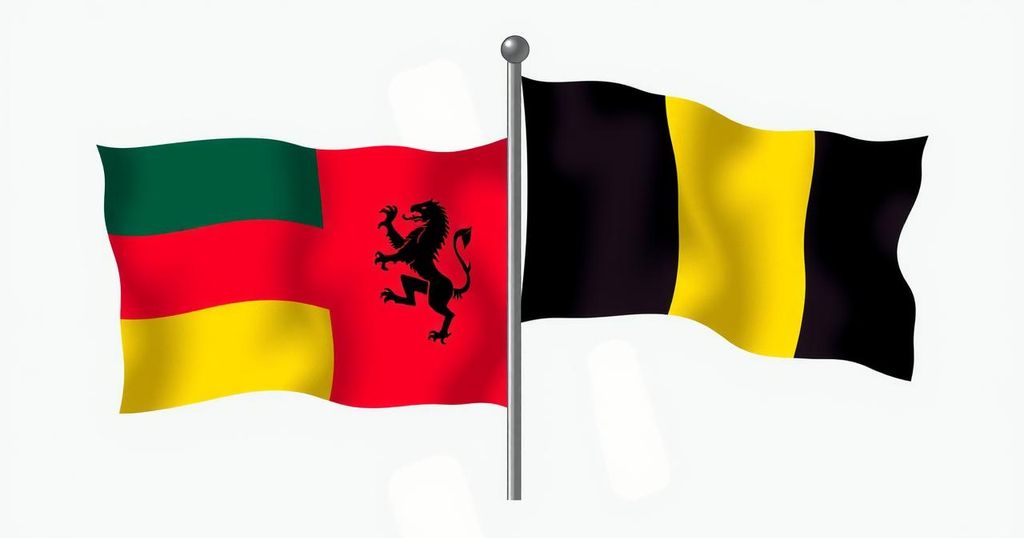Rwanda severed diplomatic ties with Belgium after the EU imposed sanctions on its officials due to alleged actions in the DRC. Belgium played a key role in advocating for these sanctions, citing Rwanda’s violations of international law. The humanitarian crisis in the region intensifies, although the effectiveness of sanctions is in question, with ongoing debates regarding EU diplomacy with Rwanda.
Tensions between Rwanda and Belgium escalated recently, culminating in Rwanda severing diplomatic ties with Belgium. This action was a response to the European Union’s (EU) decision to impose sanctions on various Rwandan military and governmental officials for alleged involvement in escalating conflicts in the Democratic Republic of Congo (DRC). Rwanda reacted by expelling Belgian diplomats and giving them a strict deadline to leave the country.
The EU’s sanctions emerged after extensive debate among its member states, with Belgium being a strong advocate for such measures. According to Kristof Titeca, a professor at the University of Antwerp, Belgium played a leading role in pushing the sanctions. The Belgian foreign minister, Maxime Prévot, stated his intention was not to undermine Rwanda, but to draw attention to its actions in Eastern Congo.
Critics may suggest that Belgium’s history as a former colonial power in the DRC motivates its stance against Rwanda. However, Titeca clarifies that while this aspect could play a role, it does not fully explain Belgium’s actions, particularly given Rwanda’s own colonial past. He highlights that Rwanda’s conduct is indicative of violations of international law, justifying Belgium’s push for sanctions.
The humanitarian implications of the conflict in Eastern Congo are dire. The United Nations and other international organizations accuse Rwanda of supporting the M23 rebel group, leading to a humanitarian crisis that has displaced over 7 million people. The ongoing instability has resulted in thousands of deaths, as fighting continues to escalate in the region, compounded by the involvement of Rwandan troops.
The efficacy of the recent sanctions remains uncertain. Despite Rwanda’s economic successes, it is significantly reliant on foreign aid, which is a crucial aspect for sanction effectiveness. Titeca expresses doubt about whether the sanctions will sufficiently halt hostilities or lead to substantial change, as they do not directly affect critical EU policies or development support that Rwanda relies on.
The EU has previously advocated for strengthening its relationship with Rwanda, viewing it as a model for development. Despite the current tensions, there are divergent views within the EU regarding the approach to Rwanda, including prior cooperation agreements related to sustainable mining. Titeca mentions that even more severe measures, such as cancelling cooperation agreements, are unlikely, indicating a shift in the EU’s diplomatic strategy. Nevertheless, he recognizes that the repercussions of the sanctions are seen through Rwanda’s vehement diplomatic response, demonstrating their potential impact.
In summary, recent diplomatic tensions between Rwanda and Belgium arose following the EU’s sanctions imposed on Rwandan officials due to allegations of involvement in conflicts in Eastern Congo. While Belgium’s motivations may stem from a complex historical context, the current humanitarian crisis underscores the urgent need for effective solutions. The potential impact of the sanctions remains uncertain, raising questions about future EU-Rwanda relations and the international community’s approach to the ongoing conflict.
Original Source: www.dw.com




